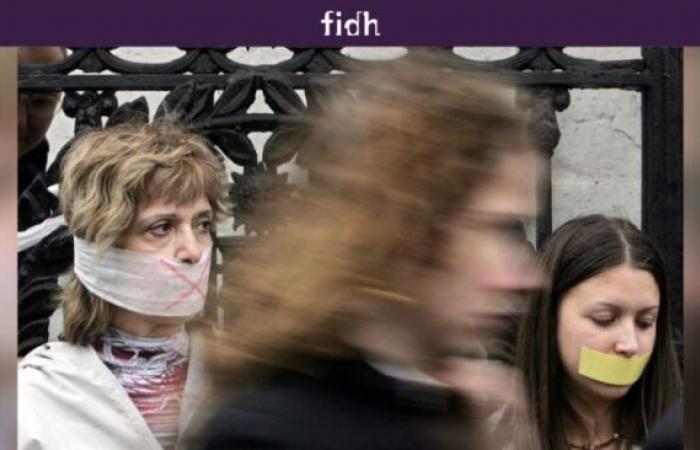Paris, November 14, 2024. Russia continues its ultra-conservative turn. Two days ago the Duma unanimously adopted a bill prohibiting the dissemination on the Internet, in the media, in films and in advertisements, of neutral or positive information about not having children.
This law must still be approved by the upper house before being sent to President Vladimir Putin for final validation. It provides for significant financial fines, which can reach up to 400,000 rubles for individuals (around $4,200) and 5 million rubles for businesses (nearly $50,000). And for non-Russian citizens, the risk of administrative arrest and deportation.
This law is a continuation of the ultra-conservative turn taken by Russia for several years. The regime highlights the family and exalts motherhood as an essential foundation of national policy. In 2020, the Russian authorities carried out a significant revision of the Constitution, notably by adding article 67 according to which “children are the most important priority of Russian state policy”. Likewise, in November 2022, the Russian President signed a decree titled “Foundations of state policy for the preservation and strengthening of traditional Russian spiritual and moral values”. It is notably stated that the demographic situation of the country is threatened by “ideological influence destructive exercise on Russian citizens” and propagated by “the United States of America and other unfriendly foreign states, as well as a number of foreign non-governmental organizations.”
“However, it was the war, mobilization and emigration that led to the demographic crisis in the country. No so-called outside influences,” explain Natalia Morozova, interim director of the Eastern Europe and Central Asia department of FIDH. “Now Putin's regime lacks soldiers for its war in Ukraine, “cannon fodder”, hence the continued promulgation of fascist laws which the State Duma adopts with unprecedented speed. Obviously, this will have no effect on the birth rate. »
2024, year of the family
The year 2024 has been proclaimed in Russia as the “year of the family”. The opportunity to adopt measures aimed at “strengthening marriage and traditional values”. Divorce costs multiplied by eight, laws prohibiting “incitement to abortion” and, a new development in a country heir to a USSR that pioneered the right to abortion: private clinics in certain regions renounce practicing voluntary terminations of pregnancy.
The law that has just been passed bans the dissemination of information on the “childfree” movement (a term used for people who voluntarily choose not to have children, whether for personal, economic or environmental reasons). . According to Valentina Matvienko, president of the Federation Council, the upper house of Parliament “this movement does not correspond to the current expectations of women” and “must be legally prohibited”.
Once the law comes into force, Russian citizens will no longer be able to say or write anything aimed at promoting a “positive image of non-parenthood and the conscious choice not to have children, if this choice is not linked to medical contraindications.”
This legislation reinforces the pressure already exerted by the Russian state on women's bodies, which makes access to abortion increasingly difficult. It is part of a broader trend, influenced by the rise of conservative currents, relying on an archaic and nationalist vision of orthodoxy. The stated goal is to defend “traditional” values, to fight against a West qualified as “decadent” and above all, controlling women’s bodies.
It joins a series of repressive laws aimed at restricting freedom of expression by reinforcing an environment of censorship where any opposition to the State's pronatalist injunctions is gradually criminalized, like the law of November 24 2022, which completely bans “LGBT propaganda” and expands the 2013 ban on the dissemination of information to minors.
FIDH observes and is concerned about this new attack on women's rights, which is part of a global trend of decline and rise of reactionary ideologies. It calls for increased, constant and united vigilance.






